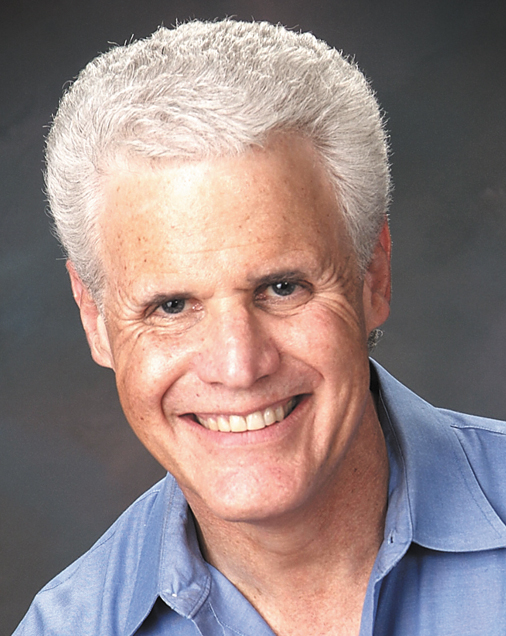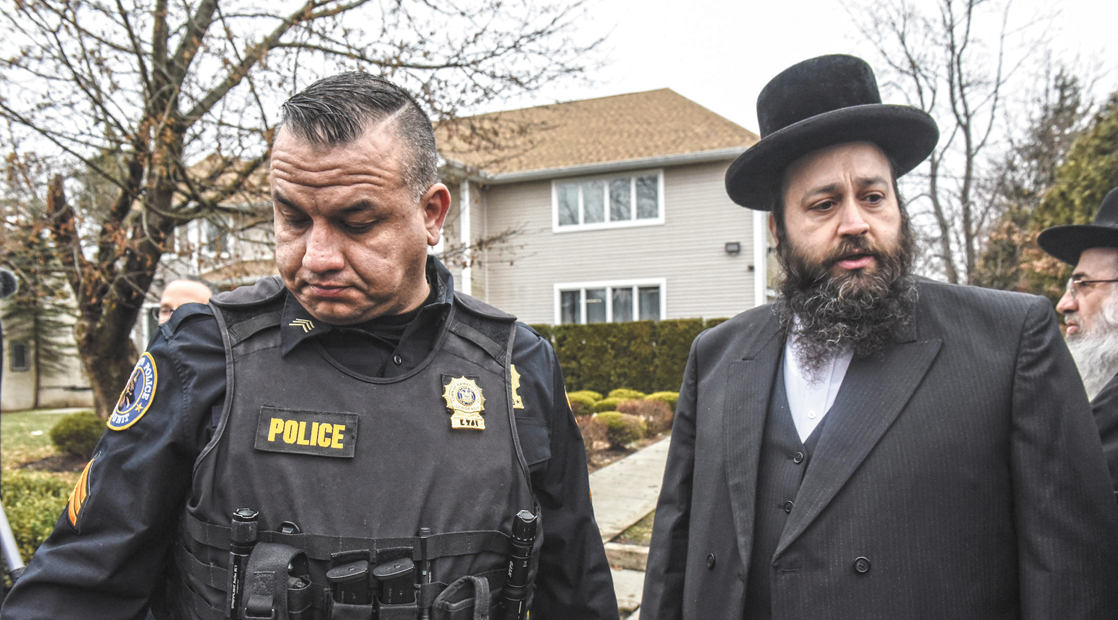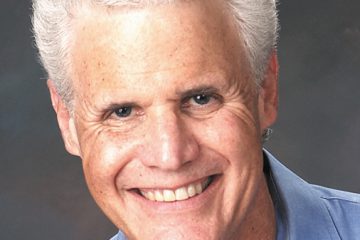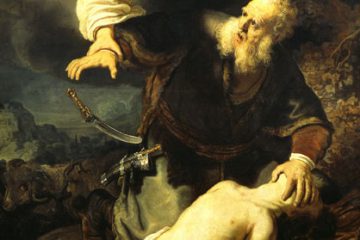Learning to shoot and not drown

By Rabbi Cary Kozberg, Temple Sholom, Springfield
Miami Valley rabbis share thoughts on unprecedented U.S. antisemitism
In the Talmud, Tractate Kiddushin (29a), we learn: “The father is bound in respect of his son to circumcise, redeem (if the son is a firstborn), teach him Torah, marry him off, and teach him a craft. There are those who say: to also teach him to swim.”
Why teach him to swim? The commentator Rashi explains that should he be on a ship that is sinking, he will be in less danger of drowning.
As a parent and grandparent, I’m certainly in the company of “those who say…” But in light of the recent violence targeting Jews both in this country and in Europe, as well as the continuing tirades against Jews spewed by religious and political radicals, I am also in the company of those who say the scope of survival skills taught to our children should be expanded.
I would amend the Talmudic text to read: “And some say to also teach a child armed and unarmed self-defense skills.”
The accompanying commentary would read: “to also teach a child armed and unarmed self-defense skills. Lest he/she be in a situation in which his/her life is suddenly in mortal danger from a violent person. Our sages have taught: if someone comes to kill you, kill him first (Sanhedrin 72a).”
Over 28,000 deaths and myriad wounded due to wars and ongoing terrorist attacks have taught the citizens of Israel the tragic truth of this lesson. Decades before the state was founded, Jews living in Eretz Yisrael realized that self-defense was a sine qua non to their existence. After Israel was created, this affirmation was fueled by the memory of the ashes of Auschwitz, which were still warm in 1948. Through the years, Holocaust awareness created the slogan Never Again — now part of contemporary Jewish jargon. But for Israeli Jews, it’s not just a slogan. Rather, it is the existential equal sign in the equation self-defense = existence. Without ambivalence, they know: if we don’t fight back, we die.
But despite the lessons Israel’s experience should have taught us in the Diaspora, ambivalence aptly describes how much of the American Jewish community still feels about Jews fighting back against those who wish to harm us. As we have recently witnessed, violent acts of antisemitism in this country and in Europe have been occurring at a rate reminiscent of the 1930s.
As of this writing (early January 2020), there have been over a dozen attacks on Jews within a month just in the New York City area. These have resulted in the deaths and serious injury of several Jews and at least one non-Jew. In this country we are taught: “when you see something, say something.” Israelis are taught: “when you see something, do something.”
American Jews are united in saying Never Again. However, we are certainly not united about what to do to ensure that this phrase remains more than a mere slogan — especially when one response involves the use of firearms. This ambivalence is starkly apparent when the same American Jews who nod in approving pride at the sight of young Israelis (even dressed in evening clothes) shlepping rifles around the streets of Jerusalem are often the very same Jews who recoil from the very idea of Jews in this country “packing heat,” especially in synagogue.
What accounts for this disconnect?
Why does learning how to protect ourselves from our enemies cause such an enigmatic unease in a community that honors the warrior King David and prays for the coming of his messianic descendant?
How is it that Jews who annually celebrate Chanukah — commemorating an armed rebellion that insured the survival of Judaism — have attitudes about the use of force so at odds with those of the Chanukah story’s hero, the priest Mattathias, who chided his fellow Jews that they must fight to defend themselves, even on the Sabbath?
How is it that Jews who annually read the Book of Esther on Purim ignore the verses recounting how Jews did defend themselves against their enemies in Persia?
How is it that we reverently recall the heroism of the Warsaw Ghetto defenders on Holocaust Remembrance Day, yet are prepared to dismiss today’s Nazi-imitating attackers as not really evil, but merely maladjusted, ignorant, or tragic victims of their socioeconomic situations?
And how is it that we continue to believe that heartfelt and noble pronouncements of “stand together” and “love trumps hate”— expressed in the aftermath of Pittsburgh, Poway, and most recently Jersey City and Monsey — will somehow be enough to protect us from further violence?
This last question focuses on a belief that is part of the problem. It was once said that the Holocaust was supposed to end Jew hatred. Seven decades later, it has not disappeared, but instead has morphed into new virulent forms. Public statements, op-ed pieces, and interfaith vigils and demonstrations are all well-meaning and necessary. But they are clearly not enough to ensure the safety of our community.
One reason for this disconnect is the prevalent view among American Jews that guns are an a priori evil. Even in the aftermath of Pittsburgh, Poway and Monsey, and despite the opinion of experts that signs prohibiting guns invite shooters who seek soft targets, many Jews still believe that signs prohibiting guns will help make their religious and community venues safe.
Even among those who may not view guns as evil per se, there is still the notion that they are an example of what was once called goyishe naches, things that only gentiles enjoy. Moreover, for Jews who lean left politically (as so many do), such attitudes are strengthened when guns are associated with political attitudes that they hold as anathema.
Consequently, when Jewish communities do need the protection of armed security, the conventional wisdom is that it is better to leave it exclusively to “the professionals,” who are usually non-Jews. Rather than promote self-defense in our own ranks like our Israeli brethren, better to leave it to others so that we don’t get our own hands shmutzik (dirty). How else to explain the insistence that our well-being depends only on law enforcement officers? How else to explain the enthusiastic welcoming of the Guardian Angels, made up mostly of non-Jews, to help protect Jews living in those New York City neighborhoods that have been targeted?

Invoking again the phrase “there are others who say,” there are several reasons to advocate for a more robust approach to self-protection, which would include the proficient and responsible use of firearms:
1. Without such an approach, sentiments and pronouncements of goodwill toward others ultimately will be little more than bromides.
2. Think of fire safety. No one disagrees that knowledge of fire safety and fire prevention are a necessity even though statistically, fires rarely occur. But should a fire suddenly break out, knowledge of prevention is no longer the point: it won’t prevent the fire itself from spreading. Between the time the fire department is called and the time it arrives, the fire will need to be contained by “non-professionals” in whatever ways available. In such emergencies, the persons who face a “clear and present danger” need to know how to effectively respond to that danger. It is not wise to rely only on first responders for this simple reason: they may be minutes away, but in the moment of an attack, it’s the seconds that count. The truth of this adage was demonstrated recently in the quick response of the trained congregant who stopped the shooter at the West Freeway Church of Christ in Texas. Without someone like him on the scene in real time, many more lives probably would have been lost — even with the police on their way.
3. Those who advocate that synagogue security be left exclusively to “the professionals” forget that the professionals themselves are not superheroes; they are merely humans like the rest of us. Every law enforcement officer who carries a firearm had to be trained and is required to maintain competence with that firearm. It is part of their continuing education. Why should competence with firearms not be part of our Jewish continuing education, if only because it is immoral to expect others to risk their lives for our safety when we are not prepared to take any risk at all?
4. A fourth and arguably more compelling reason why Jews should learn to use firearms responsibly and proficiently is the axiomatic Jewish teaching that human life is sacred. The Talmud teaches, “if someone comes to kill you, kill him first,” because our lives are given to us in stewardship, and thus we have a responsibility to their Owner to protect them. The commandment heeshamair l’kha u’shmor et nafsh’kha, take utmost care and guard yourselves (Deut. 4:9) is an apt proof text in viewing the responsible use of firearms in self-defense or in defense of others to be a sacred skill.
Rabbi Yisroel Goldstein in Poway understood this — which is why he made sure a gun and a responsible person were ready. Again, how many more lives would have been lost had that not been the case? In the aftermath of what happened in Monsey, members of that community are realizing the gravitas of what is now needed. They are beginning to arm themselves.
Fortunately, other Jews around the country are also realizing what’s needed. In areas where it is legal and easily accessible, they are getting responsible and proper training in defensive firearm use.
Groups such as Guns n’Moses, Glocks and Bagels, and Jews for the Preservation of Firearm Ownership are followed on social media. Resonating with the biblical teaching “a living dog is better than a dead lion (Ecc. 9:4),” these Jews believe that knowing how to defend their lives is better than having eulogies given about their lives.
In the Book of Exodus, we learn how the Israelites found themselves between Pharaoh’s chariots and the sea. They cried to Moses that it would have been better to remain slaves than to die as they believed they were about to. Moses responded by telling them to stand by and watch God’s deliverance. But God responded by saying to Moses: “Why do you cry out to Me? Tell the Israelites to go forward!”
It is a good bet that we will not experience the sort of dramatic rescue our ancestors experienced. Nevertheless, a similar question and a similar risk confront us: will we Jews in the Diaspora stand by and wait, or will we take the risk and jump in? Will we avoid the water and possibly let others drown us, or will we move forward?
In one of his songs, the iconic Jewish songwriter Kinky Friedman sings: Now it’s time for the chosen ones to choose, Before all hell breaks loose.”
Our Israeli brothers and sisters made their choice a long time ago. It appears that for us in the Diaspora, our time has now come.
How will we choose…before all hell breaks loose?
Prior to the attacks in the New York City area, a version of this essay appeared last year as a blog post for The Times of Israel.
To read the complete February 2020 Dayton Jewish Observer, click here.



